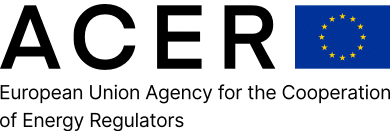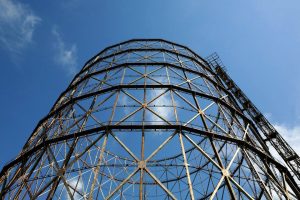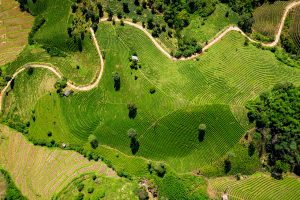EU Electricity Network Codes & the Clean Energy Package
‘Evolution of electricity markets in Europe’ is an 8-week online course in collaboration with the European Commission, ACER, ENTSOE and EU DSO Entity. Each week has reading activities, quizzes, forum discussions, office hours, and a live class to wrap up the week. Participants interact with each other, with the course instructors, and with expert panellists.
European electricity markets have been stress tested during the energy crisis of 2021-2023, leading to the fifth Electricity Market Design reform. Rather than representing a revolution, this reform builds further upon the ongoing implementation and revision of the EU Electricity Network Codes and the Clean Energy Package. During this training, we provide a platform for experts to share experiences and for non-experts with a basic understanding of the electricity markets to get up to speed with the latest evolutions in Europe.
The European Commission, ACER and ENTSO-E invited the Florence School of Regulation to organise this training. Electricity markets are undergoing many changes, and it is not easy to keep up. With this training, we want to make it easier for stakeholders to engage in the ongoing electricity market design and integration process.
This training is the successor of 3 editions of the “EU Electricity Network Codes” course and builds on 3 editions of the “Clean Energy Package” course. In 2025, we will be running the sixth edition of the “Evolution of Electricity Markets in Europe” course after successful editions in the previous years.
In this training we provide insights on how European electricity markets have evolved from the onset of liberalisation until where we are today. Alongside the evolution of electricity markets, this online training is evolving as well.
In the first three weeks, we cover topics that are mainly related to the transmission level, e.g. cross-border transmission rights, market coupling, balancing markets etc. In the fourth week, we move on to topics increasingly related to the distribution level, e.g. flexibility markets and the landscape of novel players entering to markets that used to be exclusive to “transmission-level” assets. Finally, the fifth week covers the recently amended Regulation on Wholesale Energy Market Integrity and Transparency (REMIT), which ensures transparency and integrity in wholesale markets.
An open-access book serves as background reading material together with some of the most recent stakeholder reports and academic papers.
Welcome live class with Ellen Beckstedde (FSR) and Tim Schittekatte (FSR): 18 September 2025, 12.00-13.00 CEST
Week 1: The basics of electricity markets in Europe
19 September – 25 September 2025
This week provides an overview of the fundamental micro-economics that are at the basis of how power markets function in Europe and other parts of the world where the power sector has been liberalised. We further explain why there is not one power market but a sequence of power markets in place, how the different market segments function, and who is operating those markets.
The course material starts by clarifying the concept of marginal pricing, which has been in the spotlight since the European energy crisis in 2021-2023. We also explain the rationale behind having a sequence of markets as is currently in place in Europe. This sequence starts with electricity being traded years ahead in long-term markets, the reference day-ahead market, intraday markets, and finally near real-time trade in balancing markets producing an imbalance price. We discuss the central role of the power exchanges, which have been renamed as Nominated Electricity Market Operators (NEMOs) for quite some years now, in operating the day-ahead and intraday markets. In this week, we also briefly explore current concerns about periods with increasingly high, negative or volatile market prices and highlight the impact of the latest Electricity Market Design reform on the existing market design.
Office hour with Tim Schittekatte (FSR), Ellen Beckstedde (FSR), Emma Menegatti (FSR): 23 September 2025, 12.00-13.00 CEST
Live class with Tim Schittekatte (FSR), Ellen Beckstedde (FSR), Emma Menegatti (FSR): 25 September 2025, 12.00-13.00 CEST
Topics: Nominated Electricity Market Operators, Marginal Pricing, Energy Price Crisis, Negative Prices, Auctions, Continuous Trading, Gate Closure Time, Sequence of Power Markets, Day-ahead Market, 15min Market Time Unit, Intraday Markets, Balancing Energy Market, Balancing Reserves, Imbalance Price, Long-term Markets, Redispatch
Week 2: How to trade electricity across borders?
26 September – 2 October 2025
This week covers two large topics that are at the core of trading electricity across country borders. First, we look at the European experience with the allocation of the rights to trade across borders, which has led us to “market coupling” as we know it today. Second, we discuss how to calculate border trade constraints between “bidding zones”. In other words, how do we decide how much we can trade across a particular zonal boundary in each hour?
The course material covers the topics of historical privileges to trade across borders, market-based allocation of transmission rights and the evolution from explicit to implicit auctions (a synonym for “market coupling”) in the day-ahead time frame that have been formalised in the EU electricity market network codes. The week also touches upon relevant developments in the timeframes before and after day-ahead. Furthermore, it explains why it is important to focus on cross-zonal trade constraints, why trade constraints on virtual zonal borders are calculated and who is best placed to carry out such calculations. It introduces the concept of flow-based market coupling and covers the topics of regional collaboration among Transmission System Operators (TSOs) and data exchange. Open issues when it comes to cross-zonal trade constraints and their calculation, such as the configuration of bidding zones, are also discussed.
Office hour with Tim Schittekatte (FSR), Ellen Beckstedde (FSR), Nathan Giovannini (KUL): 30 September 2025, 12.00-13.00 CEST
Live class with Tim Schittekatte (FSR), Ellen Beckstedde (FSR), Nathan Giovannini (KUL): 2 October 2025, 12.00-13.00 CEST
Topics: Market Coupling Operator Function, EUPHEMIA, XBID, Joint Allocation Office, Financial Transmission Rights, Bidding Zones, Bidding Zone Review, Flow-based Market Coupling, Nodal Pricing, Capacity Calculation Regions, Common Grid Model, Remaining Available Margin
Week 3: How to combine electricity trade with system security to keep the lights on?
3 October – 9 October 2025
This week covers two large topics. We explore in more detail how system balancing is organised in Europe, and we explain why it is important to pay attention to the detailed technicalities of system operation and connection requirements.
The course material discusses how the responsibility to keep the lights on is shared between system operators and introduce the concepts of frequency containment, frequency restoration and reserve replacement. It explains balancing responsible parties and imbalance settlement, and cover the topics of balancing capacity tenders, balancing energy markets, and the related issue of scarcity pricing in balancing markets. Cross-border balancing markets and the European platforms for the exchange of balancing energy are other important topics of this week, as are open issues in the field of congestion management after the clearing of wholesale markets. Finally, this week briefly discusses the EU grid connection network codes (RfG NC and DC NC) and non-frequency ancillary services, such as voltage control, inertia and black-start capability.
Office hour with Tim Schittekatte (FSR), Ellen Beckstedde (FSR), Binli Xiao (KUL): 7 October 2025, 12.00-13.00 CEST
Live class with Tim Schittekatte (FSR), Ellen Beckstedde (FSR), Binli Xiao (KUL): 9 October 2025, 12.00-13.00 CEST
Topics: Balance Responsible Party, Balancing Service Provider, Frequency Containment Reserves, Frequency Restoration Reserves, Replacement Reserves, Gate Closure Time, Imbalance Netting, Load-Frequency Control Area, European Balancing Platforms, Regional Coordination Centre, Critical Grid Situation, Power-Generating Modules, Power Park Module, Rate of Change of Frequency, Inertia, Significant Grid User.
Week 4: Trading electricity at lower voltage levels and the role of the consumer
10 October – 16 October 2025
This week covers two large topics. First, we explore how best to integrate distribution network constraints into (wholesale) electricity markets. Second, we discuss the new paradigm that has been offered to consumers through recent legislative packages and initiatives from the Clean Energy Package, Electricity Market Design reform to the upcoming Citizens’ Energy Package.
The course material consists of recent academic papers and stakeholder contributions. Related to the integration of distribution network constraints into (wholesale) electricity markets, we will discuss several tools that are currently under discussion to manage distribution network constraints and improve the coordination between TSOs and Distribution System Operators (DSOs). Examples are (enhanced) network tariff design, flexible connection agreements, and flexibility markets. Related to the role of the consumer, we discuss innovative practices in the retailing of electricity that affect the role of the supplier. Other topics that will be covered are active consumers, self-consumption, energy communities, independent aggregators, peer-to-peer trading, and new consumer rights.
Office hour with Tim Schittekatte (FSR), Ellen Beckstedde (FSR), Tomas Reilly (FSR): 14 October 2025, 12.00-13.00 CEST
Live class with Tim Schittekatte (FSR), Ellen Beckstedde (FSR), Tomas Reilly (FSR): 16 October 2025, 12.00-13.00 CEST
Topics: Distribution Network Tariffs, DSO, Flexible Connection Agreements, Flexibility Markets, Retail Markets, New Paradigm, Consumers, Peer-to-peer, Independent Aggregators, Citizen Energy Communities, Renewable Energy Communities, Self-Consumption, Active Customers, Dynamic Pricing, Consumer Price Protection, EU Clean Energy Package, EU Electricity Market Design Reform
Week 5: REMIT
17 October – 23 October 2025
This week, FSR colleagues from the legal department will introduce the Regulation on Wholesale Energy Market Integrity and Transparency (REMIT).
The course material introduces the most important REMIT concepts, such as market manipulation and insider trading. It also explains the obligations and prohibitions for actors addressed by REMIT and provides examples of REMIT breaches and implementation issues. Finally, this week discusses the revision of REMIT in the context of the European energy crisis.
Live expert panel with Sofia Nicolai (FSR), Lucila De Almeida (FSR): 23 October 2025, 12.00-13.00 CEST
Week 6: Buffer week to work on Mastery Challenges
24 October – 30 October 2025
Week 7 & 8:
Mastery Challenge 1: The future of capacity remuneration mechanisms
Live expert panel: 6 November 2025, 12.00-13.00 CET
Mastery Challenge 2: Ensuring reliability in a high renewable energy system
Live expert panel: 11 November 2025, 13.00-14.00 CET
Mastery Challenge 3: Unlocking demand-side flexibility
Live expert panel: 13 November 2025, 12.00-13.00 CET
The course is given in English and developed for:
The participants can take the course on 3 different levels:
The amount of time required to take this course depends on the aimed course level as well as the level of expertise in the subject prior to joining the course. For example:
Expert (Advocate level understanding of the topic) to Master: 5 hours/week
At the end of the course, the participants can earn a Certificate of Attendance, a Certificate of Completion or a Certificate of Excellence, depending of their performance and engagement throughout the course.
Each year, the Florence School of Regulation – Energy and Climate (FSR Energy & Climate) awards scholarships for a wide variety of training courses targeting a broad audience of professionals and academics.
Applications will be assessed by a Selection Committee of FSR members on a yearly basis. The successful candidates will be informed after February 2026 and will be provided with all relevant information on how to enroll in the online course or residential training of their choice.
Send your application by 25 January 2026.
Discounts
A 10% discount is available for groups of 5 or more participants from the same organisation. Please note that this discount cannot be combined with student discounts or donor free seat offers.
Contact: fsr.secretariat@eui.eu
Cancellation policy
Paid registration fee is non-refundable. However, registrant substitution may be made up to 20 days before the start date of the course.
For more information, please read the full FSR cancellation policy.
**Please kindly send your certificate of current studies with the stamp of your university to FSR secretariat (fsr.secretariat@eui.eu).
The start and end dates of your studies should also be clearly mentioned on the document. Please make sure that your period of studies fully covers the training course duration.



What will you learn

The implementation of the EU Gas Network Codes (NC) requires an important effort from many participants of the market and sound competence and specialised resources. Join us to gain comprehensive knowledge about…

The training will focus on five areas where cities can be particularly impactful: the uptake of renewable energy, improving the energy efficiency of the building stock, digitalisation and smart grids,…

For its first edition, the Specialised course on Electricity Markets will focus on the state of EU electricity market design, and engage participants in a deep-dive discussion around the role…

All you need to know about the power sector and power systems around the world Power system regulation is never at a rest, and this is particularly true for the…

The European Union (EU) and other major jurisdictions around the world have committed to achieve net-zero greenhouse gas emissions by 2050 or in the immediately following decades. The ‘Getting to Net…

Ensuring a Sustainable and Competitive Future for EU Agriculture The reform of the Common Agricultural Policy (CAP) for 2028–2034 comes at a moment of significant transition for European agriculture and…

From Geopolitics to Trading: Navigate Global Gas Markets with the Experts Building on the success of our online training, Specialised Training on the Regulation of Gas Markets, we are excited…

Learn the fundamental regulatory principles of the electricity and gas sectors through hands-on, real case activities and examples with instructors from national regulatory authorities from Europe and North America, the…

Participate in the most pressing debates on the regulation of transport in the European Union through hands-on activities based on real cases and examples presented by academics, regulatory authorities and…
To meet, discuss and learn in the channel that suits you best.